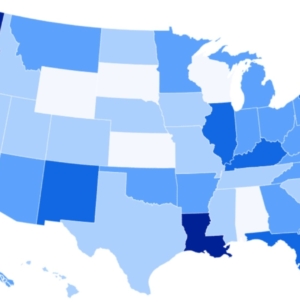-
Teacher murdered and dismembered by stranger; Couple killed and buried in the yard by granddaughter – TCNPOD - 18 mins ago
-
Map Shows How Many People Will Lose Healthcare in Each State Under Tax Bill - 20 mins ago
-
TE Darren Waller Unretires, Gets Traded to Dolphins - 23 mins ago
-
Michael Jordan’s one-time Chicago mansion listed on Airbnb - 56 mins ago
-
China Issues Update on ‘Complicated’ Border Tensions With India - about 1 hour ago
-
Steelers Add Tone Setter in Jalen Ramsey, But Is He Worth the Money? - about 1 hour ago
-
Khloé Kardashian reveals all cosmetic procedures after doctor’s speculation - about 1 hour ago
-
Soccer ban sparks fears of widening trans exclusion in the U.K. - about 1 hour ago
-
Common Belief About Left-Handed People Debunked by Psychologists - 2 hours ago
-
Tesla stock price sinks as Musk and Trump feud over spending bill - 2 hours ago
Supreme Court allows terrorism victims to sue Palestinian entities
WASHINGTON — The Supreme Court on Friday ruled that victims of terrorism can sue Palestinian entities in U.S. courts, upholding a law passed by Congress that allows such claims to be brought.
The court held unanimously that the 2019 law, called the Promoting Security and Justice for Victims of Terrorism Act, does not violate the due process rights of the Palestine Liberation Organization and the Palestinian Authority.
The law reasonably took account of “sensitive foreign policy matters within the prerogative of the political branches,” Chief Justice John Roberts wrote for the court. As such, the law “comports with the Due Process Clause,” he added.
It was an unusual case in which Congress stepped in to legislate on specific litigation after the New York-based 2nd U.S. Circuit Court of Appeals held that U.S. courts did not have jurisdiction to hear the claims.
The lawsuits, brought under a law called the Anti-Terrorism Act, were filed by various victims, including the family of Ari Fuld, an American citizen who was killed by a Palestinian terrorist at a West Bank shopping mall in 2018. Other plaintiffs involved in the litigation had previously won a $655 million judgment that the lower court threw out.
The technical legal question was whether the defendants “consented” to the jurisdiction of U.S. courts.
Congress concluded in the 2019 law that they had consented if two conditions were met: that the defendants paid a terrorist convicted of or killed while committing a terrorist attack, and that the organization in question conducted any activity within the U.S. within 15 days after the law was enacted.
The Palestine Liberation Organization represents the Palestinian people internationally, while the Palestinian Authority exercises partial domestic government authority in the West Bank.
Source link






























